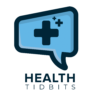When women hit their 40s, hormone shifts can feel like a roller coaster: mood swings, stubborn weight gain, fatigue, irregular cycles, hot flashes—the list goes on.
Most people focus on estrogen or progesterone…
But there’s one essential mineral that often gets overlooked—yet it plays a powerful role in keeping your hormones balanced, your metabolism strong, and your mood stable.
That mineral is zinc.
Why Zinc?
Zinc isn’t just for immune support or wound healing—it’s deeply involved in hormone production, regulation, and detoxification.
Here’s what it does for women over 40:
- Supports Progesterone Levels
Zinc helps stimulate the release of follicle-stimulating hormone (FSH), which promotes ovulation and natural progesterone production. This is crucial during perimenopause, when progesterone naturally declines. - Balances Estrogen Metabolism
Proper estrogen metabolism is essential to avoid estrogen dominance, which can cause bloating, mood swings, fibroids, and heavy periods. Zinc helps your liver process excess estrogen efficiently. - Regulates Thyroid Function
Your thyroid sets the pace for metabolism—and zinc is required to convert thyroid hormones to their active form. Without enough, you may feel sluggish, cold, or gain weight more easily. - Reduces Inflammation and Acne
Hormonal acne or midlife breakouts? Zinc has anti-inflammatory and antibacterial properties that support skin health and reduce androgen activity.
Are You Low in Zinc?
Many women are—and don’t know it.
Low zinc is common due to:
- Stress and chronic inflammation
- High-sugar or low-protein diets
- Use of birth control pills (which deplete zinc)
- Gut issues that block absorption
Signs you might be low include: thinning hair, poor wound healing, brittle nails, reduced sense of taste or smell, and irregular cycles.
Best Ways to Boost Zinc
- Food Sources: Oysters (top source), grass-fed beef, pumpkin seeds, chickpeas, and eggs
- Supplements: Look for zinc picolinate or zinc citrate (better absorbed than zinc oxide)
Recommended dosage: 15–30 mg daily (don’t overdo it—too much can block copper)
Take zinc with meals to avoid nausea, and consider pairing with vitamin B6 and magnesium for full hormone-support synergy.
The Bottom Line
If you’re in your 40s (or beyond), balancing hormones takes more than just managing estrogen.
Zinc is a quiet but crucial player in keeping your body—and mood—steady through the changes.
It’s one of the simplest, science-backed ways to support your hormones naturally… without reaching for synthetic fixes.
